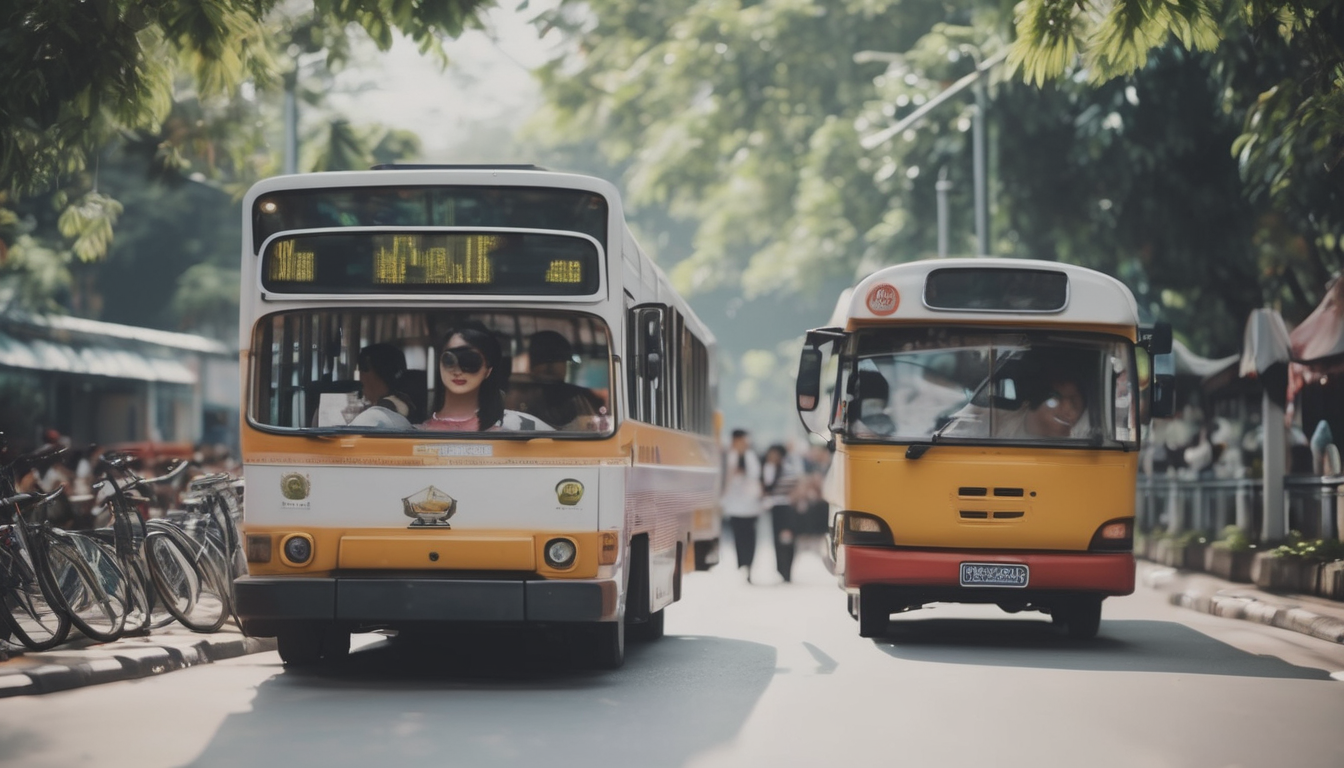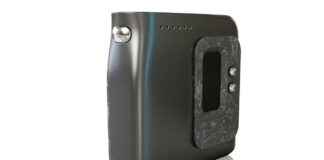If you’re comparing living costs between New York City and Jersey City, Indonesian students can expect to pay at least 25% more in monthly rent for a studio in Manhattan than in Jersey City, as of November 2024. This price gap reflects recent spikes in NYC rental demand and ongoing housing shortages. For daily commutes, the PATH train from Jersey City to Midtown Manhattan takes about 20 minutes and costs $2.75 per ride, making cross-river living feasible for students at NYU, Columbia, or CUNY. However, budgeting is tricky: while NYC offers more Indonesian grocery options and on-campus work opportunities, Jersey City’s lower rent is offset by less convenient late-night transport and fewer student-focused amenities. This guide delivers clear, up-to-date cost breakdowns, actionable budgeting tips for 2024, and a practical decision framework for choosing the right city. You’ll find realistic monthly expense comparisons and honest advice to help you settle in confidently.
Overview of Cost Factors for Indonesian Students in NYC and Jersey City

If you’re an Indonesian student eyeing a move stateside, the primary keyword for your search—cost analysis—should be your guiding light. Let’s face it: whether you’re navigating the 7 train at 74th Street–Broadway in Jackson Heights or hopping the PATH from Journal Square in Jersey City, budgeting is your new best friend. NYC’s living expenses are infamous, with things like a MetroCard now running $132 per month for unlimited rides in 2024, and rent in Manhattan or Astoria clocking in anywhere from $1,400 to $2,800 for a shoebox studio. Meanwhile, Jersey City’s Grove Street area offers slightly more breathing room—think $1,200 to $2,200—and you can still be in Lower Manhattan within 20 minutes during rush hour.
- ✓ MetroCard unlimited monthly pass: $132 (NYC, 2024)i>
- ✓ PATH SmartLink monthly pass: $110 (Jersey City, 2024)i>
- ✓ Shared apartment in Queens: $1,600 average (near Elmhurst Ave station)i>
- ✓ Studio in Journal Square, Jersey City: $1,450 median renti>
- ✓ Bodega lunch special: $8-10 (NYC)i>
- ✓ Indonesian groceries at Indo Java, Elmhurst: $50/week averagei>l>
Administrative fees add up quickly: student MetroCard processing takes about 2 days if you’re applying at the MTA Customer Service Center on Stone Street (open 9am–5pm), while New Jersey’s ID offices can stretch to a week. Health insurance is another expense to watch—NYC universities typically charge $2,000–$2,400 per academic year, while Jersey City institutions may offer slightly cheaper plans but with narrower in-network options.
Expense Typeh> NYC (Queens/Manhattan)h> Jersey Cityh> Monthly Rent (Studio)d> $1,800–$2,800d> $1,200–$2,200d> r>
Public Transit Passd> $132 (MetroCard)d> $110 (PATH)d> r>
Health Insurance (Annual)d> $2,000–$2,400d> $1,700–$2,100d>r>y>r>d>e>
Comparison of Housing and Accommodation Options in NYC vs Jersey City

Let’s get real about accommodation: the primary keyword here is “cost comparison,” and if you’re an Indonesian student deciding between NYC and Jersey City, you’ll feel the price pinch everywhere—just in different flavours. In Manhattan, even a micro-studio near 96th Street on the 1/2/3 line might run you $2,200/month in 2024, not including utilities. Head into Queens—think Jackson Heights off the 74th St/Roosevelt Ave station—and you’re looking at $1,500–$1,800 for a room in a shared apartment, but with a 40-minute commute to NYU. Jersey City, meanwhile, offers a little breathing room: $1,300–$1,600 for a one-bedroom near Journal Square (PATH train, 24/7), and most buildings have laundry in the basement, not down the street.
- ✓ Jackson Heights rentals offer vibrant street life and affordable groceries at Indian bodegasi>
- ✓ Journal Square PATH station provides direct access to 33rd St in Midtown Manhattani>
- ✗ Manhattan apartments require higher security deposits and stricter credit checksi>
- ✓ Jersey City landlords often accept international students with minimal paperworki>l>
But it’s not just rent. NYC brokers typically charge 10–15% of annual rent (yes, even for students—rush season means no mercy). Jersey City landlords more often go “no fee,” saving you thousands. A MetroCard (still $132/month unlimited in 2024) is essential for NYC, while in Jersey City, the PATH SmartLink card ($110/month) gets you into Manhattan fast—though late-night service can be patchy.
Locationh> 1BR Avg. Rent (2024)h> Brokers Feeh> Commute to Midtownh> Manhattan (96th St)d> $2,200d> ✓ 10–15% annual rentd> ✓ 20 minutes by 1/2/3 traind> r>
Queens (Jackson Heights)d> $1,800d> ✓ 10–12% annual rentd> ✓ 40 minutes by E/F/R/7 trainsd> r>
Jersey City (Journal Square)d> $1,400d> ✗ Often no broker’s feed> ✓ 25 minutes by
Transportation and Daily Expenses for Indonesian Students

Transportation and daily expenses for Indonesian students can make or break your NYC vs Jersey City cost analysis, especially when you’re hustling between classes and late-night halal carts. In NYC, a monthly unlimited MetroCard runs $132 as of mid-2024, getting you access to all subway lines—from the 7 in Queens (hello Jackson Heights!) to the A train zipping through Manhattan. Expect crowded commutes at 74th St–Broadway, and plan for weekend service changes that’ll test your patience. Jersey City students rely on the PATH train ($2.90 per ride or $110 for a 30-day SmartLink), connecting Journal Square to Midtown in under 15 minutes, but with fewer late-night options.
- ✓ MetroCard reloads available at most bodegas and subway stationsi>
- ✓ PATH stations open 24/7, but limited overnight frequencyi>
- ✓ NYC subway accepts OMNY tap-to-pay, PATH requires SmartLink or MetroCardi>
- ✓ Both cities have bus options—NYC’s MTA buses, NJ Transit in Jersey Cityi>l>
Daily expenses bite harder in Manhattan—a basic bodega coffee near 116th St. can run $2.50, while Jersey City delis hover around $1.75. Groceries at H Mart (32nd St. near Herald Square) cost more than at Asian Food Markets on Newark Ave. Expect $15 for a modest Indonesian meal in Queens (try Elmhurst), but $10-12 in Jersey City’s Little India. Even laundry stings: $3 per wash at a Manhattan laundromat, $2 in Jersey City.
Expenseh> NYC (Manhattan/Queens)h> Jersey Cityh> Monthly Transportd> $132 (MetroCard)d> $110 (SmartLink)d> r>
Grocery (weekly)d> $60-80d> $45-65d> r>
Laundry (per load)d> $3.00d> $2.00d>r>y>r>d>e>
Educational Costs and Tuition Fees in NYC and Jersey City

Let’s cut to the chase: Educational costs and tuition fees in NYC vs Jersey City for Indonesian students are a whole different ballgame. If you’re eyeing schools in Manhattan—think NYU near West 4th St–Washington Sq subway station (A/C/E, B/D/F/M lines)—be prepared for sticker shock. In 2024, annual tuition for private universities hovers between $50,000–$65,000, with additional fees for international students and MetroCard expenses (monthly unlimited: $132). Public options like CUNY (Hunter College, 68th St–Hunter College station on the 6 line) are more forgiving, roughly $18,600 per year for out-of-state and international students. Processing times for student MetroCards happen at MTA offices (open 8am–5pm weekdays), but expect lines reminiscent of the Times Square shuttle at rush hour.
- ✓ NYU tuition: $60,438 in 2024i>
- ✓ CUNY international tuition: $18,600 per yeari>
- ✓ Monthly MetroCard: $132, always neededi>
- ✓ Processing student ID: 2–3 weeks at most officesi>l>
Jersey City, just a PATH ride from Grove Street to Midtown, offers more wallet-friendly choices. New Jersey City University (NJCU, near Journal Square PATH) lists undergraduate tuition at $15,072 for out-of-state/international students in 2024/2025. Living costs drop—think $40 lunches at Manhattan’s bodega vs. $20 in Jersey City. Application processing is faster too, often under 10 business days for enrolment verification, and campus offices generally run 9am–4pm.
Locationh> 2024 Tuition (USD)h> Transport Costh> Processing Timesh> Manhattan (NYU)d> $60,438d> $132/month MetroCardd> 2–3 weeks for IDsd> r>
Queens (CUNY)d> $18,600d> $132/month MetroCardd> 2–3 weeks for IDsd> r>
Jersey City (NJCU)d> $15,072d> $81/month PATHd> 10 business daysd>r>y>r>d>e>
Additional Living Expenses and Budget Tips for Indonesian Students

Fact is, the primary keyword—NYC vs Jersey City for Indonesian students—becomes a real-life budgeting headache the moment you step off that JFK flight. Living expenses go way beyond rent in both cities, but NYC’s hidden costs sneak up on you, especially if you’re catching the 7 train from Flushing or buying groceries at a Jackson Heights bodega. Expect to spend about $30–$50 weekly on unlimited MetroCards, and prepare for sticker shock at laundromats near Astoria (around $3.50 per wash, quarters only, closing by 10 pm). In Jersey City, the PATH train to Manhattan (33rd Street station, anyone?) is $2.75 a ride, but monthly passes help.
- ✓ MetroCard for subway and bus access, $132/month unlimitedi>
- ✓ Typical NYC bodega breakfast sandwich: $4–$6i>
- ✓ Indonesian groceries in Elmhurst cost about 15% less than Manhattani>
- ✓ Laundry costs vary by neighbourhood—always check machine pricesi>l>
NYC apartment brokers often charge 12% of annual rent as a fee—Jersey City landlords rarely do. Utilities in Queens (think Woodside or Sunnyside) can run $60–$100/month per student, especially in winter. Don’t forget SIM cards; T-Mobile outlets near Times Square process prepaid plans in under 30 minutes, but bring your passport. Office hours for student services at NYU or Stevens Institute? Usually 9 am–5 pm, but lines are longest before semester starts in September 2024.
Expenseh> NYC (2024)h> Jersey City (2024)h> Subway/Transitd> $132/month MetroCardd> $110/month PATH passd> r>
Utility Billsd> $80/month avg.d> $70/month avg.d> r>
Bodega Groceriesd> $60/weekd> $50/weekd> Pro tip: Always keep $10 in small bills for corner stores in places like Bushwick or Journal Square—they’re cash-first, card-later if you’re lucky. Budget for occasional student meet-ups at Bryant Park or Newport Centre Mall, and if you’re lost, ask a local—just not during morning rush at the 42nd Street station.
Reference Box:g>- ✓ Most laundromats close by 10 pm, especially in Brooklyni>
- ✓ Cell phone plans require ID, processing weekdays onlyi>
- ✓ Indonesian groceries: Best selection on Roosevelt Ave,
You now have a clear understanding of the cost differences between NYC and Jersey City for Indonesian students in 2024, allowing you to make more informed decisions about your educational journey. You can confidently compare expenses such as accommodation, transportation, and living costs to plan your budget effectively, saving time and avoiding surprises along the way.
Your first step is to assess your personal budget and priorities, then visit local housing options and transportation providers to gather specific figures. Starting early in your planning process will give you a better chance to find affordable options that suit your needs and preferences.
Have questions or need further guidance? Share your thoughts in the comments below. For more tips on student living in New York and New Jersey, check out our comprehensive guide on indonewyork.com.












